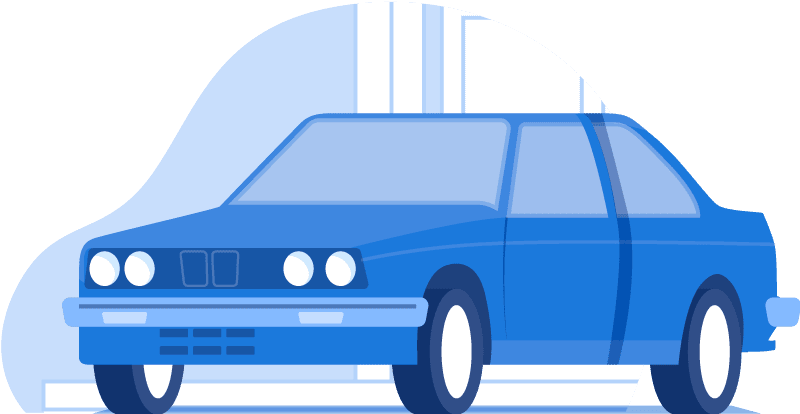Georgia Car Insurance
Providing auto insurance for cars, trucks, and other vehicles in the great state of Georgia.

Frequently Asked Questions
What does "full coverage" mean?
The term full coverage generally means that the insurance policy has both liability coverage and coverage for damage to your vehicle. The term full coverage does not mean that “everything” is covered no matter what happens. Your auto insurance Policy Declaration page lists the coverage you have selected. A Farmers agent can help you select auto insurance coverage that fits your needs and budget.
What can I do to keep my car insurance premiums low?
In order to keep your car insurance premiums low, you could consider driving a safer, slightly older, or less valuable vehicle. If you have a high premium but don’t want to change vehicles, you can also opt for a higher deductible and be sure to keep your policy from lapsing to keep costs down.
The easiest way to keep your rates low without changing vehicles or spending money is to maintain a safe driving record. Avoid moving violations like speeding and reckless driving. Ultimately, remember to drive the speed limit, drive cautiously, and buckle up – this will help you avoid getting ticketed, which will leave a mark on your record that typically lasts three years in most states.
Why do I need auto insurance?
Auto insurance is designed to protect you and everyone who shares the road from the potentially high cost of accident-related damages or injuries. It is a contract in which you pay a certain amount — or “premium” — to your insurance company in exchange for selected coverage.
A basic car insurance policy is required for drivers in most states, although the mandatory minimum coverage and policy limits will vary. If you finance or lease your vehicle, your lender may also require specific car insurance coverages and limits.
Beyond legal requirements, carrying car insurance is a smart decision. If you cause an accident or get into one with an uninsured or underinsured driver, you may be held responsible to cover related expenses, such as car repairs, property damage, medical bills, lost wages, legal fees and more. Without the proper coverage, your financial well-being may be at risk.
What Is Gap or Loan/Lease Gap Insurance?
Does Auto Insurance Cover Theft?
If your car is stolen, a number of things need to happen for you to be compensated for your loss. First, you will need to file a police report and wait while there is an attempt at recovery. If your car is not recovered, you can file a claim with your insurance company if you have comprehensive coverage.
Because of the risk insurance companies face with fraudulent claims, you will need to complete some paperwork to file your claim. But providing you have documentation for the stolen vehicle, your insurance will compensate you for the value of the vehicle up to the limit of your comprehensive coverage.
What Does Auto Insurance Cover?
There are several categories of auto insurance, each of which covers a different aspect of your risk as a driver. Here is a brief overview of these types of coverage:
- Liability: If you are deemed at fault in a car accident, liability coverage will pay for repairs, medical costs for injuries suffered by others in the vehicle, plus other expenses related to the accident such as legal fees. Your liability limits are set at the time you purchase your policy. There are two parts to liability coverage: bodily injury liability and property damage liability. The limits are the maximum amount the policy will pay out. Anything above that would come out of your pocket unless you have other insurance.
- Collision: If you hit another vehicle or an object (like a guardrail), your collision coverage will pay for damage or repairs to your vehicle after you pay a deductible (up-front amount). In other words, if you have collision coverage with a $500 deductible and you suffer damage that costs $1,500, your collision coverage will pay $1000 after you pay the first $500.
- Comprehensive: Comprehensive coverage, which is also known as “other than collision,” pays for losses to your vehicle if it suffers damage from something other than an accident. For example, if a tree falls on your car or you hit a deer while driving, some portion of that loss will be covered if you have comprehensive coverage. Like collision, comprehensive has a deductible attached to it.
- Medical expenses: This coverage pays for injuries that you, a family member, or anyone else riding in your vehicle may suffer in an auto accident regardless of who is at fault. It also pays for injuries that you or your family members may incur while riding in other vehicles.
- Uninsured/underinsured motorist: This coverage pays for injuries and property damage you suffer in an accident when the driver at fault either is uninsured or does not have enough insurance to cover your injuries and damage. It will also cover you in the event that a hit-and-run driver flees the scene and you cannot file a claim against that driver’s insurance company.
- Roadside assistance: Many insurance companies offer this optional coverage. If you need a tow or service for a flat tire or dead battery, roadside assistance will provide that service for a nominal premium.
- Rental reimbursement: If your car is in the shop for several days and you need a vehicle, this coverage will provide a rental for you for a nominal premium.
Our Customers
“Getting my quote with eAuto was super easy! Just click, click, and off you go!”
“Comparing auto quotes was causing me quite a bit of frustration. I’m so grateful for eAuto!”
“Glad to have all the paperwork done!”
